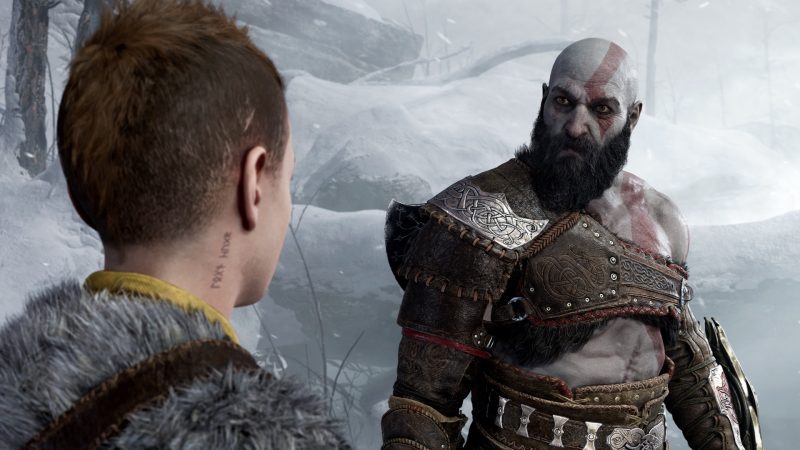
Final Fantasy 16 vs God of War: Ragnarok – Which Game Should I Buy?
In an ideal world, you’d have both the time and money to enjoy God of War: Ragnarok and Final Fantasy 16 in the same week.
Two of the best PlayStation 5 exclusives of this console generation, Final Fantasy 16 and God of War: Ragnarok, are headed to Steam and Epic Games Store on the same week on September 17 and 19, respectively. Thus, giving the more time-constrained PC gamers who will have their first shot at playing each game quite the conondrum: which game should I buy?
Final Fantasy 16 has made a significant impact since its release, praised for its scope and breathtaking setpieces. The game’s boss fights, particularly the Titan encounter, are lauded for their sheer scale and intensity. You can’t help but feel as though you are truly battling godlike entities, an experience that you might not find in God of War: Ragnarok, which is quite ironic because you’re literally playing a god fighting against other gods as Kratos.
Final Fantasy 16’s combat system is a point of contention—a stark departure from the standard Final Fantasy formula. While some appreciate its accessibility and the flashy animations, others find it becomes repetitive as the game progresses. It’s less nuanced compared to God of War: Ragnarok.


Story-wise, both games offer distinct narrative experiences. FF16 presents a grand, politically charged tale set in a rich fantasy world. The game’s lore and world-building have received praise, although feel these elements aren’t fully utilized as the story unfolds, especially in the later parts of the game. On the other hand, God of War Ragnarok continues the more personal and intimate journey of Kratos and Atreus, expanding on the intimate storytelling of its predecessor while also broadening its mythological scope.
The pacing and structure of both games are quite different as well. Final Fantasy 16’s linear design and focus on the main questline detract from the massive fantasy world. The lack of depth in the side quests and other meaningful content outside of the post-launch expansion means the game has little else to offer outside of the main story. Conversely, God of War Ragnarok’s approach to world design and side content has generally been well-received, offering a balance between narrative focus and exploration.
One area where Final Fantasy 16 seems to have an edge is in its post-launch content. The game’s DLC offerings bring substantial additions to gameplay and story, outshining the post-release content available for God of War Ragnarok.
In terms of length and replayability, Final Fantasy 16 boasts a longer playtime, with completionist runs easily surpassing 80 hours. God of War Ragnarok, while shorter, has tighter pacing and better narrative focus. However, neither offers a reason to go back and revisit the story again.


Both games come highly praised in terms of technical aspects like graphics, music, and voice acting. Final Fantasy 16’s visual spectacle during boss fights and key story moments should leave a lasting impression, especially on capable hardware. On a similar note, God of War Ragnarok’s attention to detail in character performances and world design is easy to appreciate.
As with any major release, both games have their fair share of critics. FF16 relies too much on cutscenes and excessive downtime between action sequences. Meanwhile, God of War Ragnarok’s latter half feels somewhat rushed compared to its strong opening acts.
Ultimately, whether players prefer the grandiose battles and political intrigue of Final Fantasy 16 or the mythological depth and character-driven narrative of God of War Ragnarok, there’s no denying that both games have set new standards for what players can expect from AAA RPG experiences from this console generation.



